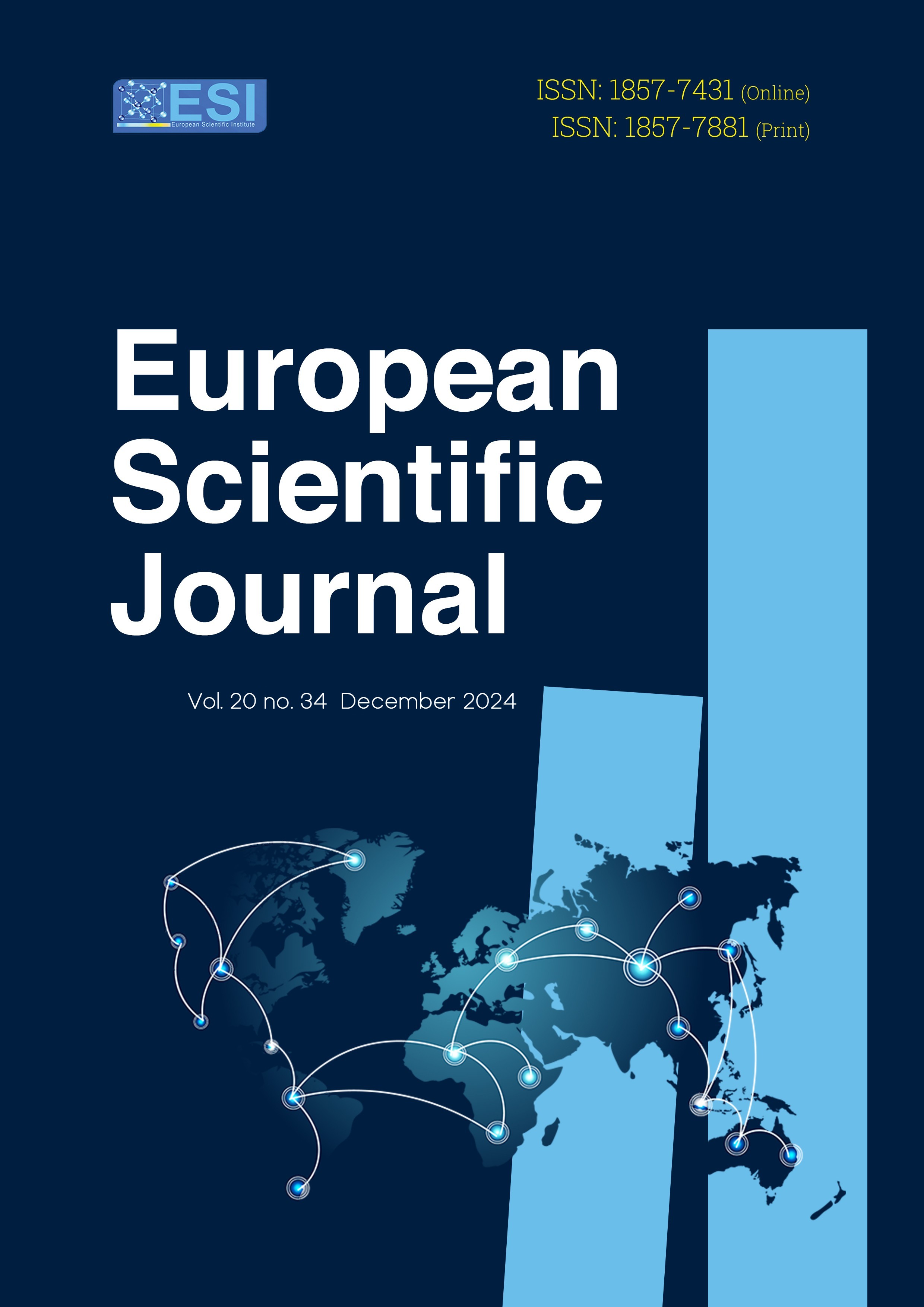The Relationship between Constructivist Thinking and Academic Engagement among University Students in Light of Some Variables
Abstract
This paper focuses on revealing the relationship between constructivist thinking and academic engagement among university students in light of some variables. To achieve the objectives, a sample of 697 male and female students was selected using available sample method at the Qasimi Academic College of Education. The correlational approach was used. The constructive thinking scale and measure of academic participation were applied. The results showed a statistically significant positive correlation between academic participation and constructive thinking dimensions. The results also showed a statistically significant negative correlation between academic participation and destructive constructive thinking dimensions. The results indicated that there were no significant differences in correlation factors between constructive thinking and academic engagement attributed to gender and specialization. Based on the findings, it is logical to conclude that the increase in constructive dimensions of constructive thinking contributes to achieving academic engagement, while the increase in destructive dimensions of constructive thinking reduces academic engagement.
Downloads
PlumX Statistics
References
2. Al-Huwaiji, K. (2016). Standardization of the constructive thinking list (short form) among university students. Scientific Journal of King Faisal University, Humanities and Administrative Sciences, 17(2), 90- 115.
3. Astin, A. W. (1993). Involvement the cornerstone of excellence. Change: The Magazine of Higher Learning, 17(4), 35-39.
4. Epstein, S. (1998a). Constructive Thinking: The Key to Emotional Intelligence. Praeger, London.
5. Epstein, S. (1998b). Cognitive-experiential self-theory: a dual-process personality theory with implications for diagnosis and psychotherapy. in Bornstein, R.F. and Masling, J.M. (Eds), Empirical Perspectives on the Psychoanalytic Unconscious, American Psychological Association, Washington, DC, pp. 99-140.
6. Epstein, S. (2001). Constructive Thinking Inventory: Professional Manual. Psychological Assessment Resources, Lutz, FL.
7. Epstein, S. (2003). Cognitive-experiential self-theory of personality. Comprehensive handbook of psychology, 5, 159-184.
8. Epstein, S. & Meier, P. (1989). Constructive thinking: a broad coping variable with specific components. Journal of Personality and Social Psychology. 57(2), 50- 332.
9. Epstein, S. & Meier, P. (1989). Constructive thinking: a broad coping variable with specific components. Journal of Personality and Social Psychology. 57(2), 50- 332.
10. Finn, D., & Voelkl, E. (1993). School characteristics related to school engagement. Journal of Negro Education, 62, 249-268.
11. Fredricks, A., Blumenfeld, C., & Paris, H. (2004). School Engagement: Potential of the Concept, State of the Evidence. Review of Educational Research, 74, 59-109.
12. Hattie, C. (2003). Teachers make a difference: What is the research evidence? ACER Res. Confer. 1–17.
13. Humphreys, H. & Zettel, C. (2002). Transformational leader self-perception and objective sales performance: the potential moderating effects of behavioural coping ability. International Business and Economics Research Journal. 1(1), 9-23.
14. Karki, P., Chaudhury, S., & Patangia, B. (2020). Academic engagement among college students in Urban Bangalore: Exploring institutional and individual level determinants of academic engagement. Manager's Journal on Educational Psychology, 14(2), 24-36.
15. Lee Valerie, E., & Smith Julia, B. (1995). Effects of School Restructuring on size and early gains in achievement and engagement. Sociology of Education, 68, 241-270.
16. Li, H., Rosenthal, R., & Rubin, D. B. (1996). Reliability of measurement in psychology: From Spearman-Brown to maximal reliability. Psychological Methods, 1(1), 98-145.
17. Miralles-Armenteros, S., Chiva-Gómez, R., Rodríguez-Sánchez, A., & Barghouti, Z. (2021). Mindfulness and academic performance: The role of compassion and engagement. Innovations in Education and Teaching International, 58(1), 3-13.
18. Morsi, A., Sadek, A., & Abdel Ghaffar, M. (2020). Psychometric Properties of the Constructive Thinking Scale for University Students. Journal of Educational and Social Studies, 26, 356-387.
19. Murad, H., & Saber, S. (2021). Building a model of causal relationships between cognitive beliefs, constructive thinking, and academic engagement among university students. Journal of Scientific Research in Education. 22(8), 264- 329.
20. Pacini, R., & Epstein, S. (1999). The relation of rational and experiential information processing styles to personality, basic beliefs, and the ratio-bias phenomenon. Journal of Personality and Social Psychology,76, 972–987.
21. Reeve, J., & Tseng, M. (2011). Agency as a fourth aspect of students’ engagement during learning activities. Contemporary Educational Psychology, 36(4), 257-267.
22. Schaufeli, B. & Bakker, B. (2006). The measurement of work engagement with a short questionnaire: across-national study. Educational and Psychological Measurement, 66(4), 701-716.
23. Schreiber, B., & Yu, D. (2016). Exploring student engagement practices at a South African university: student engagement as reliable predictor of academic performance. South African Journal of Higher Education, 30(5), 157-175.
24. Shaw, P. (2021). Moving from Critical to Constructive Thinking. Evangelical Review of Theology, 45(2), 129- 140.
25. Thayer-Bacon, B. (1998). Transforming and redescribing critical thinking: Constructive thinking. Studies in Philosophy and Education, 17(2), 123-148.
26. Vizoso, C., Rodriguez, C., & Arias-Gundin, O. (2018). Coping, academic engagement and performance in university students. Higher Education Research & Development, 37(7), 1515-1529.
Copyright (c) 2024 Mohamad Mostfa Egbaria

This work is licensed under a Creative Commons Attribution 4.0 International License.








